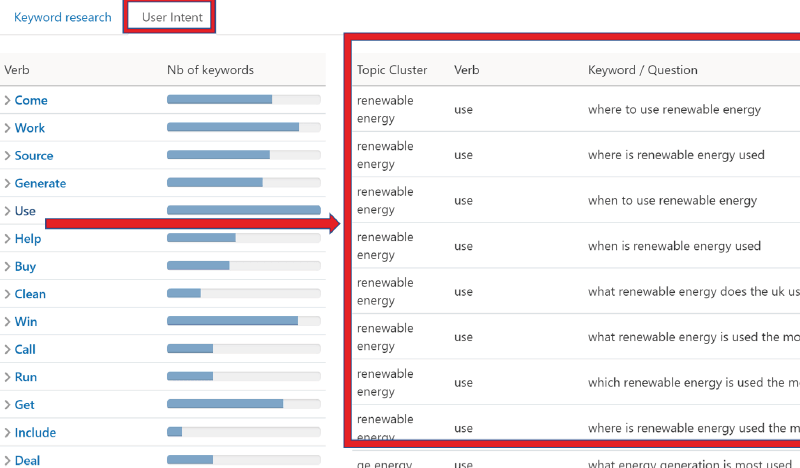Inlinks published an update to its keyword topic research tool that finds and clusters keywords by intent.
The tool is available today for all subscribers. Here’s what’s new.
Keyword Research
In the early to mid 2000’s keyword research tools focused on keyword volume because search engines didn’t distinguish user intent very well.
That began to change in 2013 with the introduction of the Hummingbird update, which introduced natural language searching and a more semantic understanding of search queries, with an increasing focus on intent.
Keyword research tools largely remained the same to this day, producing lists of keywords ordered by search volume and CPC.
Inlinks Keyword & Topic Research Tool
What Inlinks is launching is a tool that takes the next step forward to recognizing the context of keywords and the user intent.
Inlinks then uses those signals to generate clusters of keyword variations based around topics, plus suggestions for questions that need answering.
Meaningful User Intent Data
User intent is traditionally classified as belonging to four or five different categories such as navigational, transactional, informational, and so on.
Inlinks dispenses with those labels and categorizes user intent using highly specific verbs, resulting in keywords that are more specific than general labels.
Inlinks uses the example of the keyword phrase “renewable energy” to demonstrate how topic research is able to distinguish between users who want to “use” renewable energy from users who want to “generate” it.
Being able to select keyword variations related to generating renewable energy is more useful than grouping those keywords into a category, such as informational or transactional, with a group of other keywords that aren’t necessarily related to your topic.
Identifying intents by the verbs helps drill down to the right keyword topics.
Screenshot of Keyword Topic Drill-down

Inlinks Content Plan
The content plan functionality introduces a new way of considering content.
A useful approach the tool takes is to show what kind of context the competitor headlines are in.
Returning to the example of renewable energy the tool will list competitor headlines and in a column to the right list what the related topics are. Related topics can be tools, storage, photovoltaic, solar, industry and so on that can be chosen for a content plan, according to what’s relevant to you.
In the example of the keyword phrase, renewable energy, each selected topic can then form the topics for web pages. Or the topics can be used to form the backbone of topic categories for an entire website.
The tool is thus another way to explore multiple topic clusters that can then be selected to be placed in the editor tool to next form a content plan.
Inlinks Topic and Keyword Research
Researching keyword topics by using verbs to identify relevant topics is an innovative approach to speeding up the process of creating content.
Citation
Read the Official Announcement at Inlinks
Topic Research Tools – The New Keyword Research
Featured Image: SvetaZi/Shutterstock
!function(f,b,e,v,n,t,s) {if(f.fbq)return;n=f.fbq=function(){n.callMethod? n.callMethod.apply(n,arguments):n.queue.push(arguments)}; if(!f._fbq)f._fbq=n;n.push=n;n.loaded=!0;n.version='2.0'; n.queue=[];t=b.createElement(e);t.async=!0; t.src=v;s=b.getElementsByTagName(e)[0]; s.parentNode.insertBefore(t,s)}(window,document,'script', 'https://connect.facebook.net/en_US/fbevents.js');
if( typeof sopp !== "undefined" && sopp === 'yes' ){ fbq('dataProcessingOptions', ['LDU'], 1, 1000); }else{ fbq('dataProcessingOptions', []); }
fbq('init', '1321385257908563');
fbq('track', 'PageView');
fbq('trackSingle', '1321385257908563', 'ViewContent', { content_name: 'inlinks-launches-new-keyword-topic-research-tool', content_category: 'news seo' });

